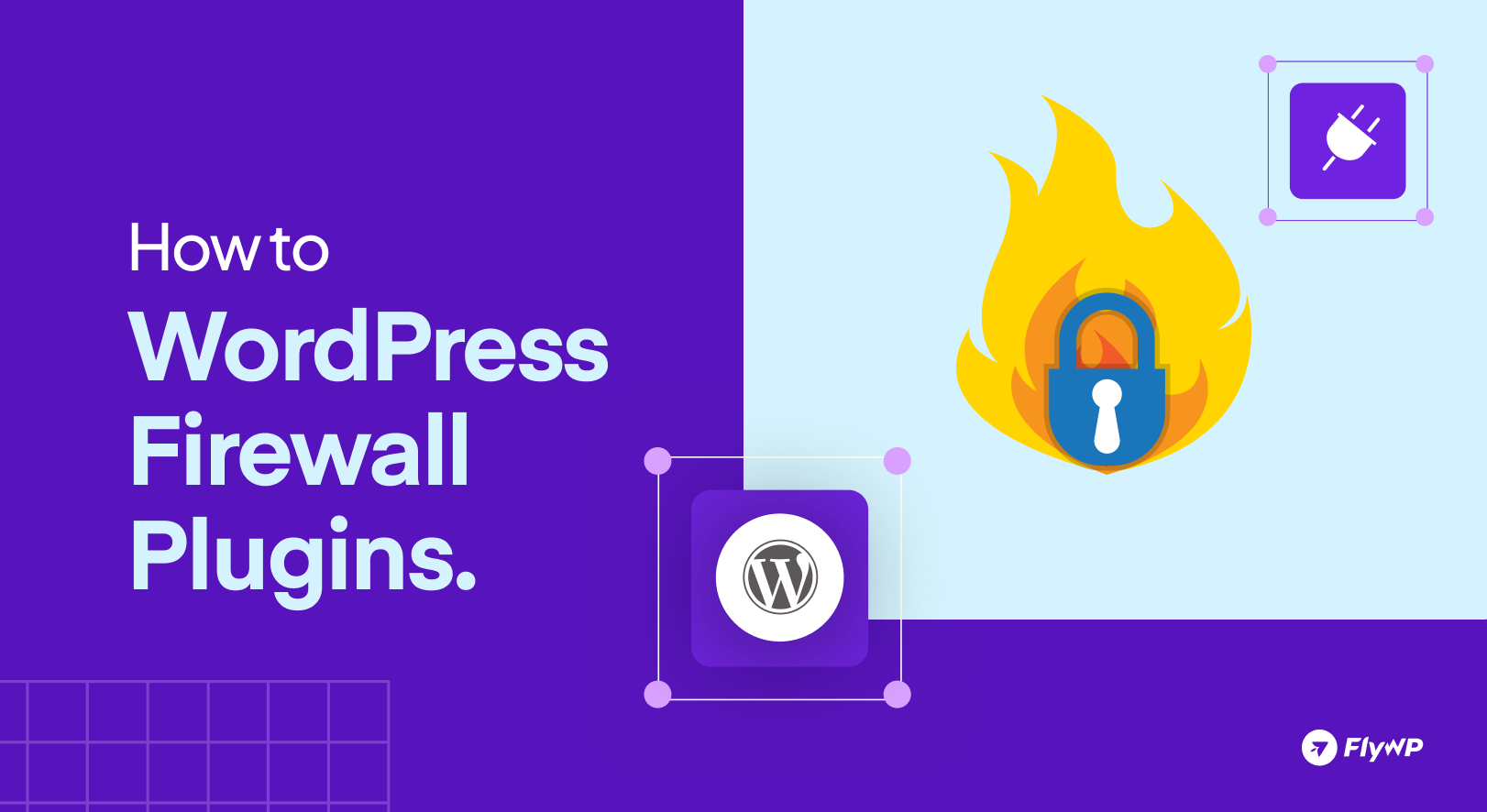So, you’ve built your beautiful WordPress site. You’ve picked the perfect theme, launched your content, and you’re ready for the world. But wait, did you remember to lock the doors?
Running a WordPress site without a firewall plugin is like leaving a pile of gold on your front lawn with a sign that says “Please Steal.” Seriously, the platform’s popularity is a magnet for trouble.
Need some perspective? Plugins were the source of over 95% of all WordPress vulnerabilities last year. Yikes. The average WordPress site is probed for weaknesses once every 40 minutes. That’s a lot of unwelcome visitors. In fact, a majority of vulnerabilities require zero user authentication to exploit.
Yes, they don’t even need a key to get in.
The truth is, security is non-negotiable, but which shield do you choose? With dozens of “must-have” security plugins on the market, it’s easy to suffer from analysis paralysis and end up choosing nothing at all.
We’ve done the heavy lifting for you. We put 6 of the top WordPress Firewall Plugins through the wringer, dissecting their key features, measuring their impact on site performance (because fast security is good security), and identifying where they shine and where they fail. Ready to finally fortify your digital castle?
Let’s dive into the ultimate comparison, and reveal our single, top-rated pick.
The Top Wordpress Firewall Plugins You Might Want to Know
The top-tier WordPress security plugins, primarily Wordfence Security, Sucuri Security, and Solid Security (formerly iThemes Security Pro) offer comprehensive protection.
They share key features like:
- Web Application Firewalls (WAF): Blocking malicious traffic before it hits your site (Wordfence uses an endpoint WAF; Sucuri uses a cloud-based WAF).
- Malware Scanning: Deeply checking your files, themes, and plugins for infections.
- Login Hardening: Implementing features like two-factor authentication (2FA) and brute-force attack protection.
Our exhaustive testing quickly elevated a few names to the top tier.
Let’s discuss…
1. Cloudflare: The Premier Platform for Website Security and Performance
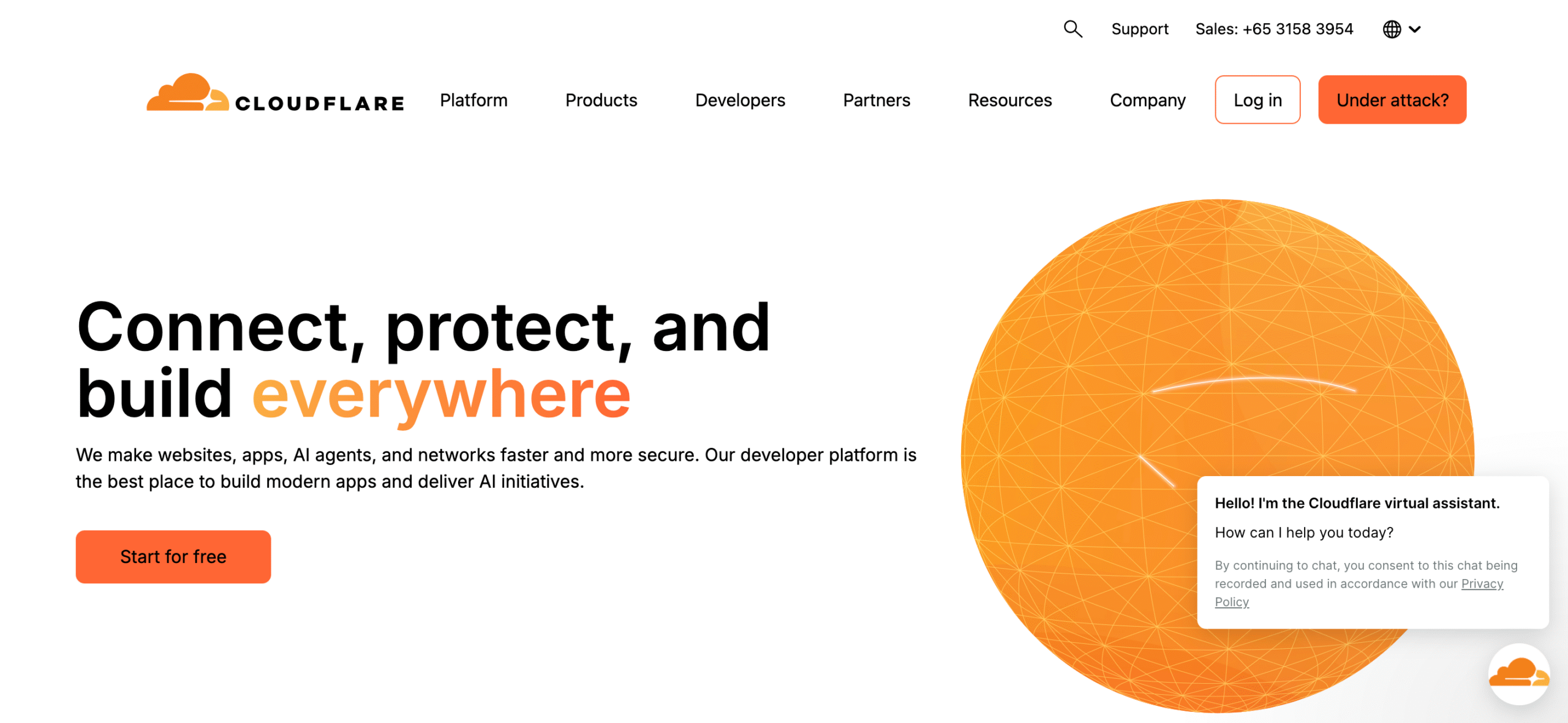
Cloudflare is a highly recommended solution for businesses, eCommerce platforms, and blogs, offering superior security and performance. As demonstrated by many high-traffic sites (such as WPBeginner, who migrated from Sucuri), users often experience improved page load times, enhanced security, and greater overall stability.
Key Features and Benefits:
- Robust Security: Includes a powerful Web Application Firewall (WAF) to block malicious attacks, comprehensive DDoS protection, and browser integrity checks.
- Global Content Delivery Network (CDN): Cloudflare’s extensive global network caches static content, drastically improving page load times and reducing latency for visitors worldwide.
- Performance Optimization: Features include image optimization for reduced bandwidth, customizable page rules, and a fast DNS service.
- Advanced Tools: The platform provides a free SSL certificate and DNSSEC for protection against domain tampering. Its innovative Turnstile CAPTCHA feature replaces traditional, frustrating puzzles with simple, non-intrusive challenges to verify human users and block bots.
- Bot Management & Email Routing: Dedicated tools identify and block malicious bots, and the Email Routing service enhances deliverability while minimizing spam.
A free WordPress plugin is available to manage core features like DNS records, firewall settings, SSL certificates, and site analytics directly from the WordPress dashboard, including an IP Geolocation feature for content personalization.
The Cloudflare Advantage: Cloudflare is an ideal choice for businesses of all sizes, integrating a powerful CDN, advanced firewall, and smart bot management into one robust system.
Note: While a free plan is available, access to certain advanced features is restricted to paid tiers.
2. MalCare: A Top-Tier WordPress Firewall Solution

MalCare consistently stands out as a leading security plugin for WordPress. Its deep malware scanning system thoroughly checks every file and database entry, accurately identifying hidden malware quickly. Crucially, the plugin features a one-click cleanup tool for fast, easy removal of detected threats.
A key benefit of MalCare is its minimal impact on server performance, a common issue with competing security plugins. The integrated intelligent firewall actively blocks malicious bots and requests, which is trackable through real-time logs.
Core Features Include:
- Deep malware scanning and one-click removal
- Intelligent firewall and bot protection
- Login protection and vulnerability detection
- WordPress backups, staging, and migration
- Uptime monitoring and scheduled reports
- Geo-blocking and IP whitelisting
- Unlimited personalized support
Key Advantages:
- Thorough, accurate malware detection and flawless cleanups
- Maintains excellent server performance
- Automated scans and real-time alerts
Note on Pricing: A free version is available with basic scanning and firewall functionality, but malware removal and location details are reserved for the paid plans, which start at $99 per year.
3. Sucuri: Essential WordPress Security, Speed, and Guaranteed Cleanup

Sucuri is a robust, cloud-based platform providing comprehensive security, recovery, and performance for WordPress websites. Its core strength is a powerful Web Application Firewall (WAF) that operates at the DNS level, filtering and blocking threats like DDoS, SQL injection, XSS, and brute force attacks before they ever reach your server. The WAF also applies virtual patching to protect against zero-day exploits.
A major feature is the guaranteed, unlimited malware removal included in all professional plans, meaning security experts will clean up your site at no extra cost, even if it’s already compromised. To boost speed, the service integrates a global Content Delivery Network (CDN), which improves loading times and reduces server load.
Other key features include real-time threat alerts, continuous uptime monitoring, blacklist checks, and a free SSL certificate for all Firewall users. While a free WordPress plugin offers basic hardening and scanning, the advanced WAF and guaranteed malware removal require an upgrade to a professional Sucuri Platform plan.
4. Wordfence Security: A Highly Regarded, Feature-Rich WordPress Plugin
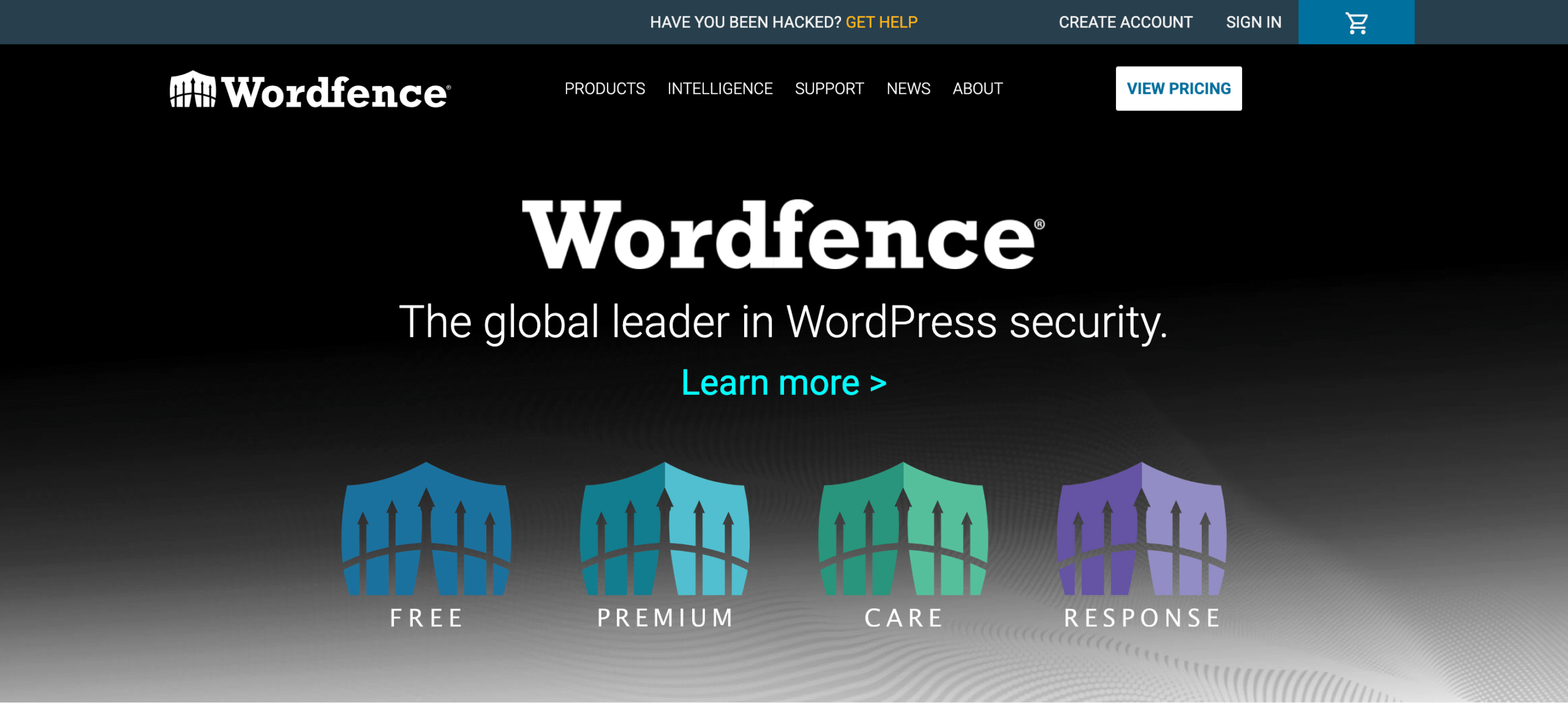
Wordfence Security is one of the most well-known security solutions for WordPress, offering an endpoint firewall, malware scanner, and login security directly on your server. While the installation and initial setup are generally smooth, the experience varies significantly between the free and premium versions.
Key Features
Wordfence provides a robust suite of tools to protect your site:
- Endpoint Firewall: A proprietary Web Application Firewall (WAF) that runs on your server to block malicious traffic.
- Malware Scanner: A thorough signature database detects malware, bad URLs, backdoors, and known security issues.
- Login Protection: Includes two-factor authentication (2FA) and comprehensive brute force protection.
- Geographic Security: Offers country blocking to halt malicious login attempts or attacks from high-risk regions.
- Reputation Checks: Monitors your site’s reputation and checks for inclusion on blacklists.
Strengths (Pros)
- Established Database: Features a very thorough and extensive database of malware signatures.
- Ease of Use: Simple installation and configuration, allowing users to quickly secure their site.
- Repair Functionality: The free version includes a repair option for infected files, which is a valuable feature.
- Premium Support: Paid members receive prioritized technical support.
Areas for Improvement (Cons)
- Limited Free Scanning: The free malware scanner is incomplete, checking only about 60% of your site. This leaves the remaining 40% vulnerable to hidden malware.
- Performance Impact: Scans can be resource-intensive, often leading to noticeable slowdowns on the website.
- Detection Method: Its primary malware detection method relies on file matching against the database, which can sometimes be less effective than behavior-based analysis.
- False Positives: Users may encounter a high number of false positives during scans.
- Alert Fatigue: The system is known for sending a high volume of alerts and notifications.
- Feature Gaps: The plugin lacks a detailed activity log and dedicated bot-protection features.
Pricing
The premium version, which unlocks full features including the complete malware scan database and real-time firewall rules, starts at $119 per year.
5. Jetpack: A Multi-Functional WordPress Maintenance Suite
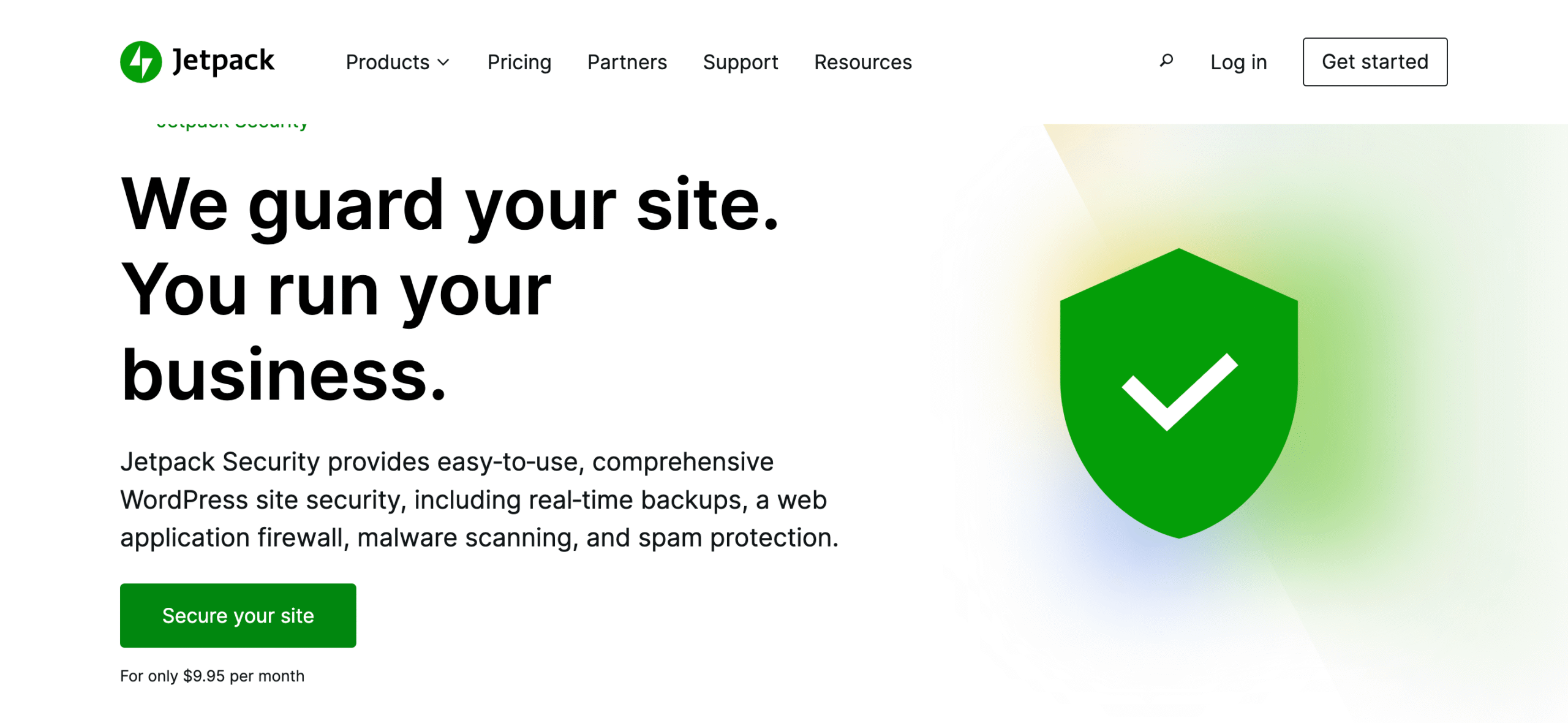
Jetpack, a platform by Automattic (the creators of WordPress.com), bundles security, performance, and maintenance features into one offering, evolving from its origins as the backup plugin, VaultPress. While it benefits from strong brand recognition, its security focus is more on monitoring and prevention than deep malware cleanup.
Key Features and Strengths
Jetpack is positioned as a comprehensive maintenance toolkit, not just a security solution:
- Comprehensive Activity Log: Provides a detailed activity log, which is crucial for tracking all site changes and isolating the cause of an issue.
- Maintenance Bundle: Combines security features with essential tools like backups, performance optimization, and site migration options.
- External Access: The dashboard is integrated with your WordPress.com account, allowing for external access—a significant advantage if you are locked out of your site’s admin area.
- Core Security Functions: Offers brute force protection, downtime monitoring, and two-factor authentication (2FA).
Limitations (Cons)
Jetpack’s security offering has several notable limitations that make it an incomplete solution for handling severe security incidents:
- No Firewall: Unlike dedicated security products, Jetpack does not include a Web Application Firewall (WAF) to actively block malicious traffic before it reaches your server.
- Incomplete Scanning: The malware scanner is limited; it checks for file modifications, dangerous plugins, and vulnerabilities, but is often inadequate for detecting all hidden malware on a site.
- No Auto-Cleanup: The platform does not offer automatic malware cleanup, requiring manual intervention after a detection, which is a major gap at its price point.
- Free Plan Limitations: The free tier is extremely restrictive, offering only basic brute force protection.
Summary: Security vs. Maintenance
While Jetpack excels as a broad maintenance solution (especially with its excellent activity log and external access), it is not a primary, complete site security measure. Its scanner may detect some issues, but the lack of a WAF and guaranteed auto-cleanup means it will not fully secure a compromised site without additional tools or significant manual effort.
6. SolidWP (formerly iThemes Security): Comprehensive Security and Site Management

SolidWP offers an all-in-one security, backup, and site management experience, making it an excellent choice for users who prefer a single, intuitive platform for multiple maintenance tasks.
Key Security Features
SolidWP focuses on hardening and access control directly within WordPress to prevent unauthorized entry and minimize vulnerabilities:
- Access and Login Hardening: It provides two-factor authentication (2FA), enforces strong password policies, and includes a Magic Link feature for secure, password-less login.
- Version Management: A highly valued feature that automatically maintains the security of core WordPress, theme, and plugin versions.
- File Integrity Monitoring: Continuously monitors for unauthorized file modifications, safeguarding against threats like SQL injection and malicious code injection.
- Attack Prevention: Includes comprehensive brute force protection and automatic blacklisting of repeat bad actors.
- CAPTCHA Integration: Allows embedding CAPTCHA for an extra layer of security on login and other critical forms.
- Integrated Backups: It regularly creates database backups, integrating a critical disaster recovery feature directly into the security workflow.
Trade-offs and Considerations
While SolidWP excels at internal hardening, it operates differently from firewall-first solutions:
- No Native Firewall or Scanner: The plugin does not include a built-in Web Application Firewall (WAF) or proprietary malware scanner. Instead, it relies on third-party services to provide these critical features.
- Potential Server Load: Active, deep monitoring can sometimes lead to increased server load, which is a consideration for sites on budget hosting plans.
Recommendation
SolidWP is recommended for sites seeking an “all-in-one” solution where security is viewed holistically—encompassing prevention, access control, and guaranteed recovery via integrated backups. If simplicity and keeping essential maintenance features under one umbrella are your top priorities, SolidWP provides a very solid and reliable choice, despite outsourcing the core firewall and scanning functions.
Bonus: FlyWP, The Ultimate Server-Level Fortification for WordPress
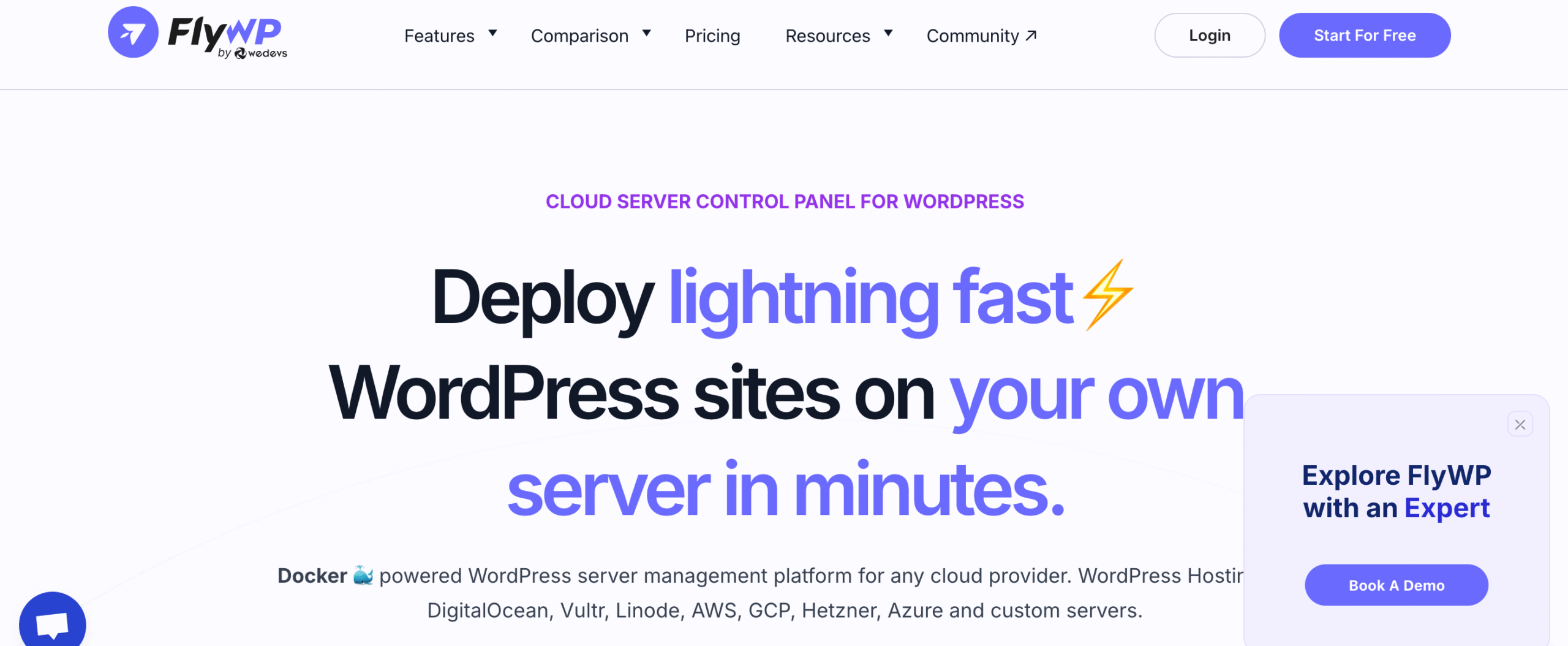
You mentioned that security is non-negotiable, and neither is performance. That’s where FlyWP, a cloud server control panel for WordPress, shines by providing security measures at the most fundamental level: the server and its architecture.
While the plugins you reviewed focus on the WordPress application (which is crucial, as you noted, since plugins are the biggest source of vulnerabilities), FlyWP integrates security directly into the hosting environment. This gives you a robust, layered defense model.
Key Security and Performance Features
FlyWP moves beyond a traditional security plugin by offering foundational, server-level protection and performance enhancements:
- Server-Level Firewall: FlyWP automatically deploys a robust, expert-recommended firewall (including a version of the popular 7G Firewall) at the server level. This provides protection before malicious traffic even hits the WordPress application, which is more effective than an endpoint WAF like Wordfence’s.
- Site Isolation in Docker Containers: Each WordPress site is run in its own secure, isolated Docker container. This is a major security advantage: if one site is compromised, the breach is contained and cannot spread to other sites on the same server, a risk inherent in traditional shared hosting or non-isolated server setups.
- Built-in Security Hardening: FlyWP automates many best-practice security measures, which can often be tedious to configure manually. These include:
- One-click Disable XML-RPC and Disable Login features.
- Directory Protection to shield the
wp-contentandwp-includesdirectories. - Automatic SSL/HTTPS deployment via Let’s Encrypt.
- SSH Key Management for secure server access.
- Integrity Checker & Updates: It includes a WordPress Integrity Checker that scans core and repository plugin files against official versions and allows for one-click restoration of modified files. Centralized WordPress updates further reduce the vulnerability window caused by outdated software.
- Performance as Security: By offering multiple optimized site stacks (like Nginx or OpenLiteSpeed) and advanced caching (like Redis Caching and FastCGI), FlyWP ensures your server resources aren’t drained by legitimate traffic, which can make your site more vulnerable to low-volume Denial of Service (DoS) attacks.
Why FlyWP is the Top-Rated Pick
The plugins you reviewed offer excellent security within WordPress. But the single most effective way to secure a professional WordPress site is to combine a robust application-level tool (like one of the options you mentioned) with a platform that secures the underlying server.
FlyWP is our recommended top choice because it shifts the security focus to the hosting infrastructure, providing a server-level firewall and isolation via Docker, which the other plugins cannot replicate. It delivers high performance and a strong security foundation for your entire digital castle, not just the front door.
Whether you choose a WAF-focused solution like Sucuri/Cloudflare or an endpoint-based one like Wordfence, integrating your site with a secure server control panel like FlyWP provides an essential layer of security that completes your fortification strategy.
You can learn more about how FlyWP manages WordPress security settings at the server level in this video. Ultimate Guide: Secure Your WordPress Site with FlyWP
Quick WordPress Firewall Q&A
Q1: Why is a firewall crucial for WordPress?
A: Because 95%+ of vulnerabilities come from plugins, and the average site is probed every 40 minutes.
Q2: Cloud WAF (Sucuri/Cloudflare) vs. Endpoint WAF (Wordfence)?
A: Cloud WAF blocks threats at the DNS level before they hit your server. Endpoint WAF runs on your server, blocking them after they arrive.
Q3: Are plugins without a WAF (like SolidWP or Jetpack) worth using?
A: Yes, but as secondary layers. They excel at internal site hardening (access control, backups, logging), not primary threat blocking.
Q4: Which service guarantees malware cleanup if I get hacked?
A: Sucuri. All professional plans include guaranteed, unlimited malware removal by experts.
Q5: Which solutions are best for site performance?
A: Cloudflare and Sucuri use a CDN. MalCare and FlyWP are noted for their minimal server load and optimized architecture.
Q6: What’s the best free security option?
A: Cloudflare offers a robust free plan with a CDN, WAF, and DDoS protection.
Q7: Why is FlyWP the “top pick” if it’s a server panel, not a plugin?
A: It provides server-level fortification and site isolation via Docker—a stronger, foundational security layer that plugins can’t replicate.
Q8: Can I use FlyWP with a security plugin?
‘A: Yes. This is the ideal layered defense: FlyWP for server security plus a plugin (like Sucuri or MalCare) for application-level protection.
Before Wrapping Up..
The truth is, security is a layered defense. You need more than just a plugin, you need a secure foundation.
While an application-level WAF like Sucuri or Cloudflare is essential, remember the ultimate defense: server-level security. That’s why FlyWP is our top pick; it provides the robust, isolated infrastructure (Docker, server-level firewall) that the others can’t.
Don’t wait for a breach. Combine a top-tier plugin with a secure control panel like FlyWP, and finally enjoy the speed and peace of mind you deserve.
